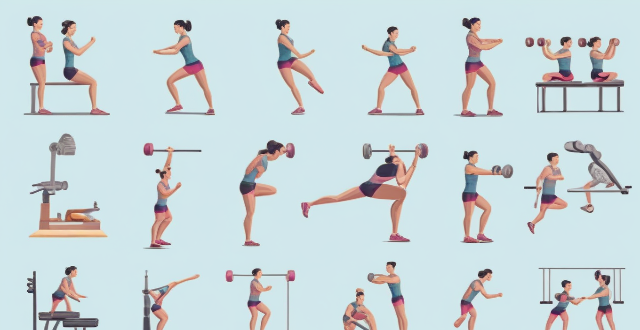Nutrition is a crucial component of sports training, providingNutrition is a crucial component of sports training, providing repair, boosting immunity, providing energy, supporting recovery and repair, boosting immunity, and maintaining hydration. Athletes should consume a balanced diet with carbohydrates, proteins, and fats for optimal energy production. Pre-exercise meals should focus on carbohydrates, during-exercise snacks can include simple sugars for quick energy release, and post-exercise meals should combine carbohydrates and protein for recovery. Proper nutrition strategies can improve athletic performance and overall well-being.

Nutrition in Sports Training Program
Introduction
Nutrition plays a crucial role in a comprehensive sports training program. It is an essential component of an athlete's overall performance and well-being. Proper nutrition can help athletes achieve their goals, improve their performance, and reduce the risk of injuries. In this article, we will discuss the different aspects of nutrition in sports training and how it can benefit athletes.
The Importance of Nutrition in Sports Training
Energy Production
Athletes require a significant amount of energy to perform at their best. The primary source of energy comes from the food they consume. Carbohydrates, proteins, and fats are the three main macronutrients that provide energy to the body. A balanced diet that includes all these nutrients is essential for optimal energy production.
Recovery and Repair
After intense physical activity, the body needs time to recover and repair itself. Proteins are essential for muscle repair and growth, while carbohydrates help replenish glycogen stores in the muscles. Fats also play a role in recovery by providing energy and supporting hormone production.
Immune System Support
A strong immune system is crucial for athletes as it helps them stay healthy and avoid illnesses that could affect their performance. Nutrients such as vitamins, minerals, and antioxidants support the immune system and help prevent infections.
Hydration
Staying hydrated is essential for athletes as dehydration can lead to fatigue, decreased performance, and increased risk of injuries. Drinking enough water before, during, and after exercise is crucial for maintaining proper hydration levels.
Nutrition Strategies for Athletes
Pre-Exercise Nutrition
Eating a balanced meal or snack before exercise can help provide energy and improve performance. Carbohydrates should be the primary focus, along with some protein and fat for sustained energy release. Examples of pre-exercise meals include:
- Whole grain bread with peanut butter and banana slices
- Oatmeal with milk and mixed berries
- Greek yogurt with granola and honey
During Exercise Nutrition
For prolonged exercise sessions lasting more than an hour, consuming carbohydrates during exercise can help maintain energy levels and improve performance. Examples of during-exercise snacks include:
- Sports drinks containing electrolytes and carbohydrates
- Energy gels or chews with simple sugars for quick energy release
- Fresh fruit or dried fruit for natural sugars and fiber
Post-Exercise Nutrition
Recovery nutrition is essential for athletes as it helps replenish energy stores, repair damaged tissues, and support immune function. Consuming a combination of carbohydrates and protein within 30 minutes after exercise can optimize recovery. Examples of post-exercise meals include:
- Chocolate milk or a smoothie with fruit and protein powder
- Grilled chicken or fish with roasted vegetables and brown rice
- Hummus and veggie sandwich on whole grain bread
Conclusion
In conclusion, nutrition plays a vital role in a comprehensive sports training program. By providing adequate energy, supporting recovery and repair, boosting immunity, and maintaining proper hydration levels, athletes can improve their performance and overall well-being. Incorporating appropriate nutrition strategies before, during, and after exercise can further enhance athletic performance and promote long-term health benefits.